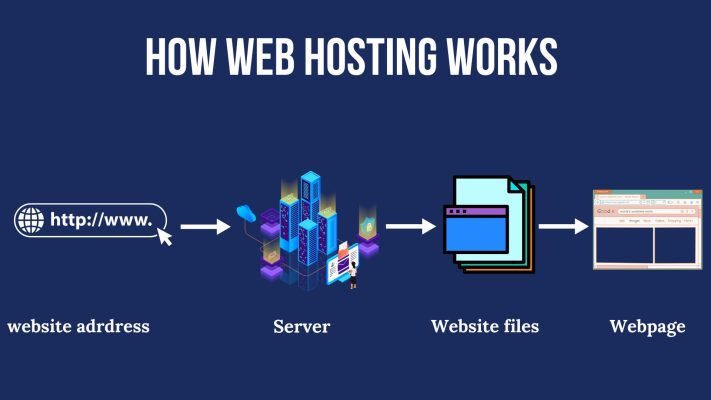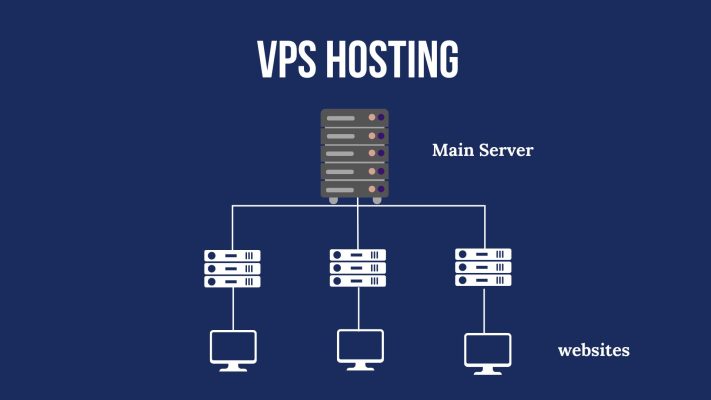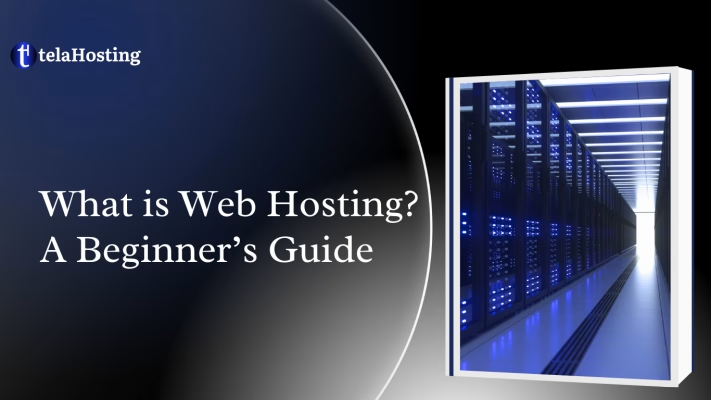
Imagine you own a large quantity of goods but lack sufficient storage space. You decide to rent a warehouse where your goods can be securely stored, and customers can come to view or purchase them. This is similar to web hosting: when you create a website, whether for a blog, business, or any other purpose, you need a place to store its content. Web hosting provides the space to store your website’s files, making them accessible on the internet.
Technically, web hosting stores all the files that make up your website, such as text, images, and code, on a powerful computer called a server. This server is connected to the internet, enabling visitors to access your website seamlessly.
How Does Web Hosting Work?
Web hosting works similarly to a warehouse. Just as a warehouse manager locates and delivers a product to a customer, a web server retrieves your website files and delivers them to visitors.
Here’s how it works:
- A visitor types your website’s name (e.g., www.yourdomainname.com) into their browser.
- The browser sends a request to the server where your website files are stored.
- The server retrieves the requested files and sends them back to the browser.
- The browser displays the files as a complete webpage all in just a few seconds.
Types of Web Hosting Services
Choosing the right web hosting plan is crucial for your website’s success. Let’s explore the main types of web hosting and who they’re best suited for:
1. Shared Hosting
This is like sharing a warehouse with other businesses. You share server resources such as storage, bandwidth, and memory with other websites.
In shared hosting, a server hosts multiple websites, and its resources are divided among them based on their hosting plans. For instance, if a server has 200 GB of storage, it will be allocated to the hosted websites according to the plan each has purchased.
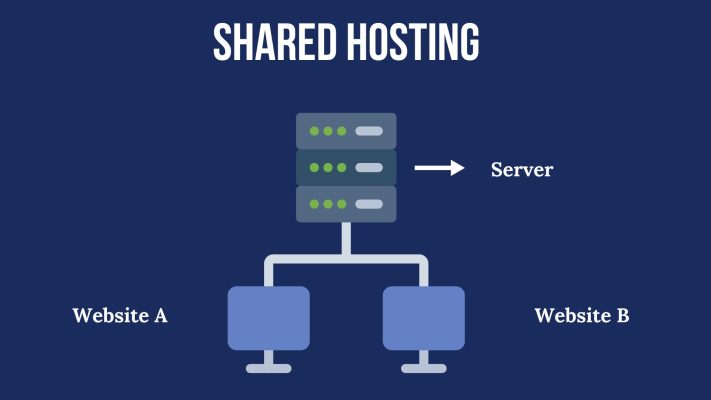
Who Should Use Shared Hosting?
- Personal blogs or portfolios.
- Small businesses with limited traffic.
- Beginners.
Pros
- Affordable: budget-friendly plans.
- User-friendly: Easy setup and management.
- No technical expertise is required.
Cons
- Limited resources: shared with others.
- Performance issues: Traffic spikes on one website can slow others.
- Restricted customization.
2. VPS Hosting (Virtual Private Server)
VPS (Virtual Private Server) is an upgrade from shared hosting that offers more control and resources. It’s like having a private section within a shared warehouse; while you’re still in the same building, your space is exclusively yours, and you don’t share it with others.
Who Should Use VPS Hosting?
- Growing websites with higher traffic.
- Online stores need speed and security.
- Developers requiring more control.
- Small and medium businesses.
Pros
- Dedicated resources: CPU and RAM exclusively for your website.
- Customization: greater control over server settings.
- Improved security: isolated from other users.
- Better performance: handles more traffic.
Cons
- Higher cost compared to shared hosting.
- Technical knowledge is required for setup and maintenance.
- Hardware dependency: Issues with the physical server can affect you.
3. Dedicated Hosting
Dedicated hosting gives you an entire server for your website, much like owning a private warehouse.
Dedicated hosting, as the name suggests, means having an entire server exclusively dedicated to your website. Business owners can rent a physical server solely for their use, similar to owning an entire warehouse. With this setup, you don’t share resources, space, or potential issues with anyone else.
This premium hosting option gives you complete control over the server, including the ability to configure hardware and install any necessary software. All server resources, like CPU, RAM, storage, and bandwidth, are reserved for your website alone, ensuring optimal performance and customization.
However, owning a dedicated server comes with significant costs. Just like maintaining a private warehouse, you’re responsible for everything, including upkeep and management, which often require a skilled team to handle properly.
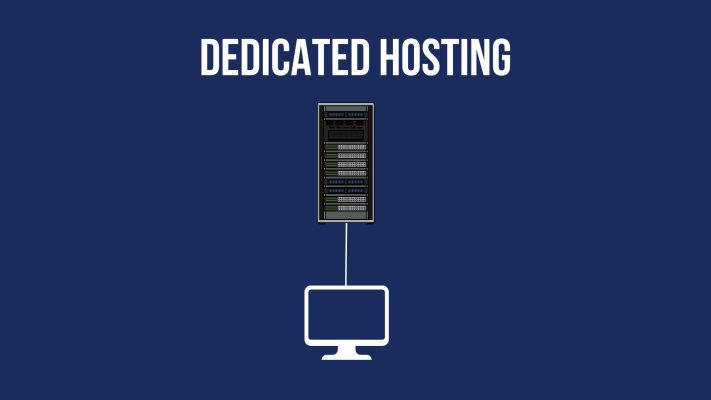
Who Should Use Dedicated Hosting?
- Large websites with high traffic, such as news platforms.
- E-commerce stores handle sensitive data.
- Organizations requiring custom server configurations.
- Resource-intensive applications.
Pros
- Maximum performance: All server resources are dedicated to your website.
- Enhanced security: full control over server protections.
- Complete customization: Tailor the server to your needs.
- Dedicated IP address.
Cons
- High cost: The most expensive hosting option.
- Technical expertise is required for management.
- Not suitable for small websites.
4. Cloud Hosting
Cloud hosting is the ultimate in web hosting flexibility. Unlike other hosting types that rely on a single server, cloud hosting uses multiple interconnected servers to host your website. It’s like having several interconnected warehouses; if one warehouse runs out of a product, another will have it, ensuring seamless delivery.
Similarly, if one server experiences downtime, another server can take over, minimizing or eliminating any disruption to your website’s availability. This system ensures that your site stays online with little to no downtime.
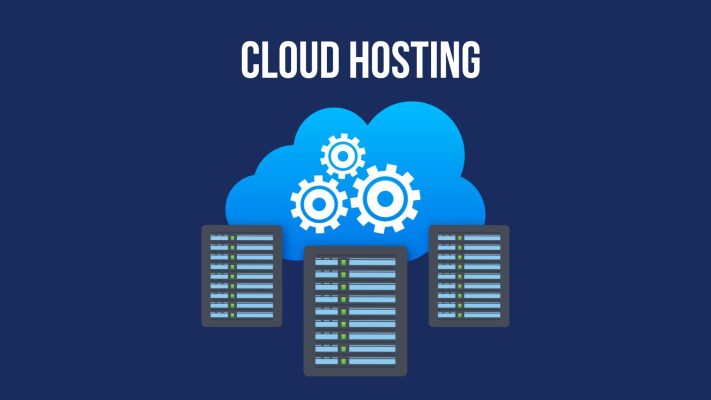
Who Should Use Cloud Hosting?
- Growing websites.
- High-traffic blogs.
- E-commerce sites.
- Enterprise applications.
Pros
- Scalability: Adjust resources as needed.
- Reliability: Downtime is minimized through server redundancy.
- Cost-efficient: Pay only for what you use.
- Global reach: faster load times for international visitors.
Cons
- Complexity: requires advanced technical knowledge.
- Cost variability: Usage-based pricing can increase costs.
- Shared security responsibilities: You manage some aspects of security.
Why Do You Need Web Hosting?
Without web hosting, your website cannot be accessed online. It’s like having a business but no storefront. Here are key reasons why web hosting is essential:
- Accessibility: Makes your website available to visitors worldwide.
- Storage: Securely stores all your files (text, images, videos).
- Reliability: Ensures your website remains active and responsive.
- Security: Protects your data with features like SSL certificates and backups.
- Scalability: Adapts to your traffic needs.
- Support: Hosting providers offer technical assistance for troubleshooting.
- Professionalism: Custom domains (e.g., www.yourbusiness.com) enhance credibility.
For example, Mr. James only has a physical store, so his customers are limited to those nearby. His reach is local, meaning his sales are restricted by his location.
Mr. Tony, on the other hand, has both a physical and online store. With web hosting, his online store is accessible to customers worldwide, allowing him to expand his business beyond local boundaries. He can make sales to both local and international customers, increasing his revenue.
In short, web hosting opens up global opportunities, while a physical store limits growth to the local area.
How to Choose the Right Hosting Provider
Selecting the right hosting provider is critical for your online success. Follow these steps:
- Understand Your Website’s Needs
- Type of website (blog, e-commerce, etc.).
- Traffic expectations.
- Budget and customization requirements.
- Evaluate Hosting Types
- Shared hosting: best for beginners and small websites.
- VPS hosting: suitable for growing businesses.
- Dedicated hosting: ideal for high-traffic, resource-intensive websites.
- Cloud hosting: perfect for fluctuating traffic.
- Key Features to Consider
- Uptime (at least 99.9%).
- Performance (e.g., SSD storage, CDN support).
- Security (SSL certificates, firewalls).
- Customer support (24/7 availability).
- Pricing and renewal costs.
- Scalability options.
- Compare Providers
- Research pricing, features, and reviews.
- Look for free trials or refund policies.
- Avoid Red Flags
- Hidden costs or unrealistic offers.
- Poor customer support.
- Lack of transparency.
In conclusion, web hosting is the backbone of your online presence, providing the resources and infrastructure to make your website accessible to the world. Whether you’re running a personal blog or managing a large e-commerce platform, choosing the right hosting plan ensures reliability, performance, and growth for your website.
